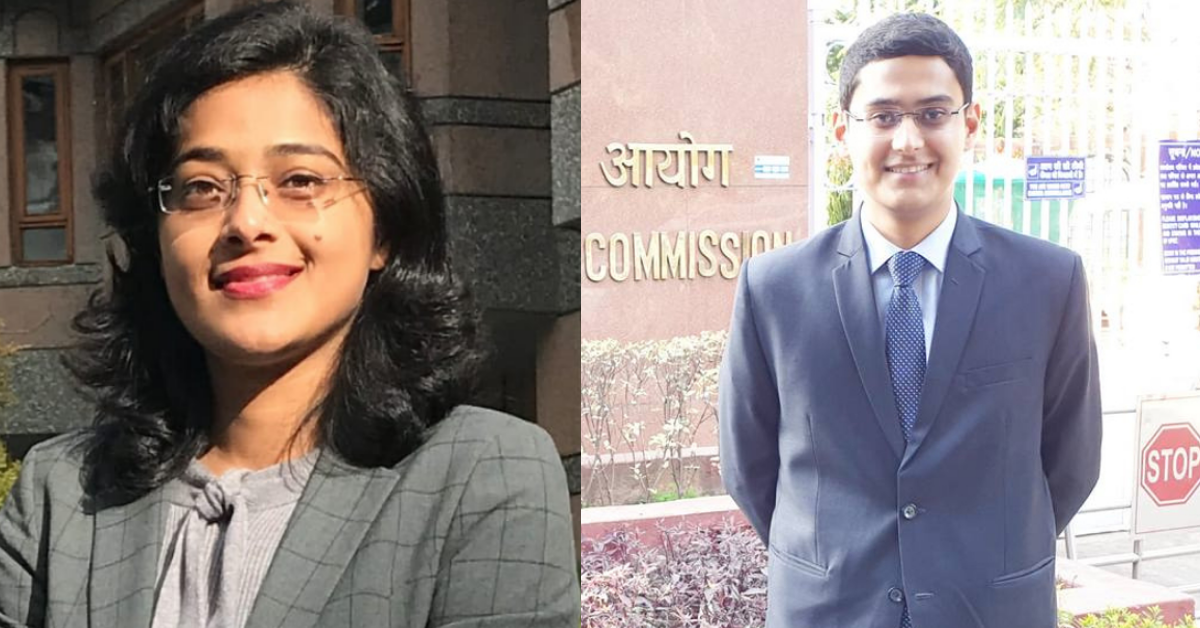UPSC Must-Read: IAS Officers Share How To Tackle ‘Laxmikanth’s Indian Polity’
“It is imperative that the book is read cover to cover for the first 2-3 times. The nature of the book is such that if an aspirant reads it logically, one will be better placed while later memorising important aspects of the book.”

Laxmikanth’s text on Indian Polity is the Holy Grail for every UPSC aspirant to understand how our behemoth democracy works. The bulkiness of this book can be daunting, and so The Better India, spoke to Surabhi Gautam AIR 50 CSE 2016 and Priyank Kishore AIR 274 CSE 2018, to understand how they utilised the book effectively.
Have you checked out our wide range of environmentally friendly toys?
How to Tackle Laxmikanth’s Text

“Personally, I found that the best way to read Laxmikanth is by starting with Class 11 and 12 NCERT’s on polity. Most of the concepts get cleared with a general reading of these books and once done, an aspirant should take up Laxmikanth,” shares Priyank.
“It is imperative that the book is read cover to cover for the first 2-3 times. The nature of the book is such that if an aspirant reads it logically, one will be better placed, while later memorising important aspects of the book.”
Each chapter:
Priyank says that each chapter in the book is linked – for instance – the chapters on Supreme Court-High Court and Parliament-State legislatures. Priyank suggests that aspirants use these connections to read the book faster.
For Prelims:
• Focus on the tables in the book.
• There is no need to memorise Article numbers in the book.
For Mains:
• Focus on the chapters with committee recommendations
• Make a list of landmark Supreme Court cases. These will help you in writing good answers.
Surabhi Gautam, who also extensively used Laxmikanth’s book on Indian Polity, says:

• While reading the first few chapters on the making of the constitution, aspirants must watch the series called Samvidhan on Rajya Sabha television. If done together with some reading about the respective Acts from any modern history book, will help strengthen the foundation.
• Take up the chapter on ‘Rights’ in one day – make clear notes on the various articles, especially Part III (Fundamental Rights) 21, 15, 19, 32, 34, 35. Rights during an emergency need to be memorised.
• While studying the chapter on Directive Principles of State Policy (DPSP) – slot them under Gandhian, Social and Philosophical categories. Chart them according to women, backward classes, industrial workers, environment etc.
• Pay heed to the new DPSP that were added/deleted by 42nd and 44th Constitutional amendment. This is important for both Prelims and Mains.
• Pay heed to the chapter on ‘Duties’.
• You need a whole day on the chapter on ‘Parliament’. It needs that much time. Keep in mind the differences between motion, resolution, act and rules, legislations and ordinance.
• At the time of studying the chapter on ‘Parliament’ make a note on the various kinds of questions that can be asked in the legislature – starred, unstarred, short notice, etc. Make a short one-page note on it which will make it easy to revise at a later stage.
• Study the chapters on ‘President’ and ‘Governor’ simultaneously. Similarly, focus on the chapters dealing with ‘Prime Minister’ and ‘Chief Minister’ together.
• Study chapters on ‘Constitutional Bodies’ together and while doing that, make your table to understand the manner in which appointments are made, whom the President appoints, what their tenure, criteria for reappointment is, etc.
• Similarly, study the chapter on ‘Local Self Governance’ together. List out all the committees like B R Mehta, Singhvi and others mentioned.
• Pay attention to the chapter on ‘Emergency provisions’ and as you study it, make notes.
Ensure that you solve previous year question papers; if new questions have been asked then try to cover those chapters as well and solve all the objective questions mentioned at the back of the textbook.
A strong base of Indian Polity will help you across all sections of the UPSC exams, even the interview.
So the next time you pick up Laxmikanth’s Indian Polity, keep these pointers in mind.
Also Read: Primary School Teacher Cracks UPSC, Makes Father’s Dream Come True!
(Edited by Saiqua Sultan)
Like this story? Or have something to share?
Write to us: [email protected]
Connect with us on Facebook and Twitter.
If you found our stories insightful, informative, or even just enjoyable, we invite you to consider making a voluntary payment to support the work we do at The Better India. Your contribution helps us continue producing quality content that educates, inspires, and drives positive change.
Choose one of the payment options below for your contribution-
By paying for the stories you value, you directly contribute to sustaining our efforts focused on making a difference in the world. Together, let’s ensure that impactful stories continue to be told and shared, enriching lives and communities alike.
Thank you for your support. Here are some frequently asked questions you might find helpful to know why you are contributing?


This story made me
-
97
-
121
-
89
-
167













